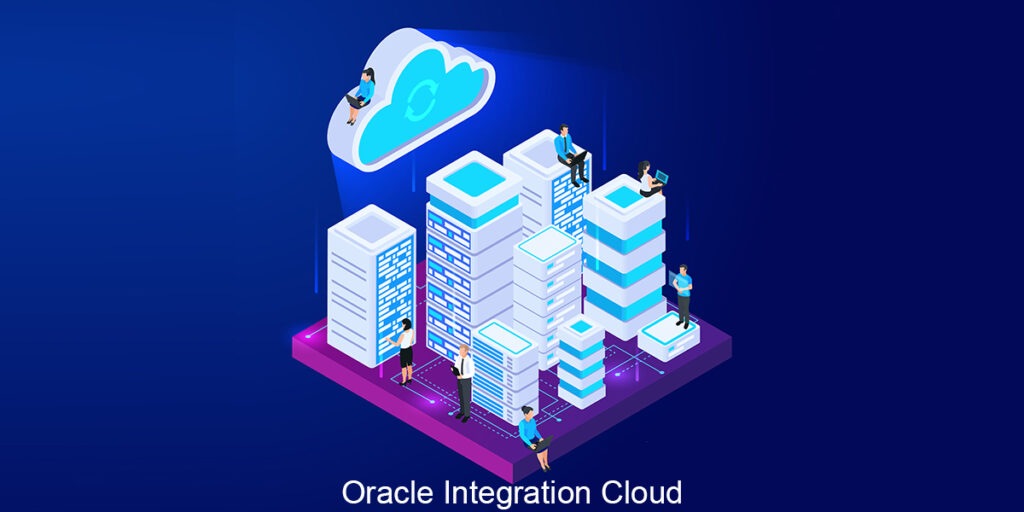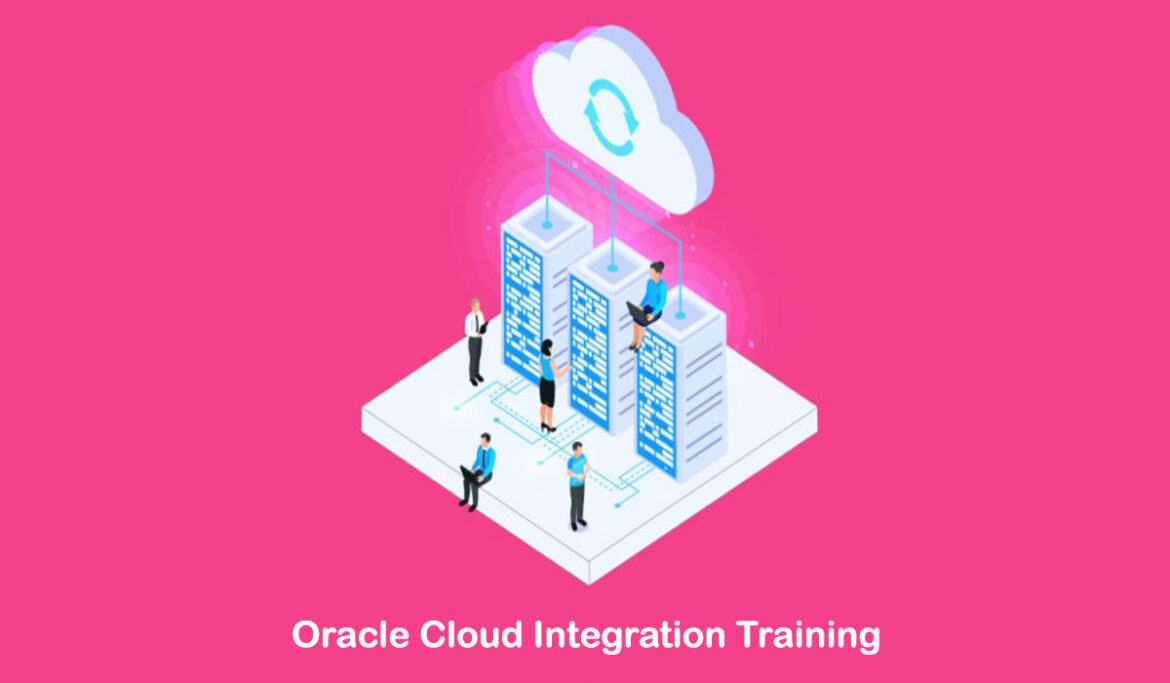In today’s fast-paced digital landscape, businesses strive for seamless integration between applications, data, and processes. Oracle Integration Cloud (OIC) stands out as a powerful solution for automating business processes, eliminating manual efforts, and improving efficiency. Whether you need to integrate cloud-based applications or on-premises systems, OIC provides a scalable and intelligent platform.
This article explores how Oracle Integration Cloud revolutionizes business process automation, its key benefits, core features, and real-world applications. We will also answer some frequently asked questions (FAQs) to provide a comprehensive understanding.
What is Oracle Integration Cloud (OIC)?
Oracle Integration Cloud (OIC) is a cloud-based integration platform that enables organizations to connect applications, automate business processes, and gain insights using artificial intelligence and machine learning.
It provides pre-built adapters for various cloud and on-premise applications, reducing the complexity of integration. The platform supports multiple integration patterns, including API-led connectivity, event-driven integration, and robotic process automation (RPA).
Key Capabilities of Oracle Integration Cloud:
- Application Integration: Connects cloud and on-premise applications.
- Process Automation: Automates workflows and reduces manual efforts.
- API Management: Designs, secures, and manages APIs efficiently.
- Insight and Monitoring: Provides real-time insights for data-driven decision-making.
Why Businesses Need Oracle Integration Cloud?
Organizations dealing with multiple software applications often face challenges in data consistency, operational silos, and inefficiencies. OIC addresses these problems through seamless integration, automation, and centralized data processing.

Key Benefits of OIC in Business Process Automation:
✅ Improved Efficiency
OIC eliminates the need for repetitive manual tasks by automating business workflows. This leads to faster processing times and reduced errors.
✅ Cost Reduction
By integrating applications seamlessly, businesses save money on development, maintenance, and resource allocation.
✅ Faster Time-to-Market
With pre-built connectors and intuitive drag-and-drop capabilities, organizations can rapidly deploy integrations without complex coding.
✅ Scalability and Flexibility
OIC allows businesses to scale integrations as per growing demands and adapt quickly to new business requirements.
✅ Better Decision-Making
With real-time data synchronization and AI-powered insights, businesses can make informed decisions faster.
Key Features of Oracle Integration Cloud

1. Pre-Built Adapters for Seamless Integration
OIC provides out-of-the-box adapters for widely used enterprise applications such as:
✔ Oracle ERP, HCM, SCM
✔ Salesforce
✔ SAP
✔ Workday
✔ Microsoft Dynamics
✔ NetSuite
These adapters eliminate the need for complex coding and accelerate the integration process.
2. Process Automation with Visual Workflow Designer
OIC includes a user-friendly workflow designer that enables businesses to create automated workflows using drag-and-drop functionality. This minimizes reliance on IT teams and speeds up process execution.
3. API Management for Secure Data Exchange
With built-in API management, OIC enables organizations to create, publish, and monitor APIs. This ensures secure communication between applications and enhances reusability.
4. Artificial Intelligence & Machine Learning Capabilities
OIC leverages AI and ML to optimize business processes, detect anomalies, and provide predictive analytics.
5. Event-Driven Architecture for Real-Time Processing
OIC supports event-driven architecture, enabling applications to respond to real-time events such as order processing, inventory updates, and customer interactions.
6. Hybrid Cloud & On-Premise Integration
Businesses using a mix of on-premises and cloud applications can seamlessly integrate both environments, ensuring smooth data flow across platforms.
Use Cases of Oracle Integration Cloud in Different Industries
📌 Retail & E-Commerce
- Automates order processing, inventory management, and payment reconciliation.
- Enables seamless integration between e-commerce platforms and ERP systems.
📌 Healthcare
- Facilitates data exchange between patient management systems and insurance providers.
- Ensures compliance with healthcare regulations such as HIPAA.
📌 Finance & Banking
- Automates loan approval workflows and fraud detection.
- Enables real-time integration between banking applications and customer databases.
📌 Manufacturing & Supply Chain
- Streamlines procurement, logistics, and supplier management processes.
- Provides real-time visibility into supply chain operations.
📌 Human Resource Management
- Automates employee onboarding, payroll processing, and performance reviews.
- Integrates HR applications like Oracle HCM, Workday, and SAP SuccessFactors.
Step-by-Step Guide to Automating Business Processes with OIC
1️⃣ Define Business Requirements: Identify the key processes that need automation.
2️⃣ Choose the Right Adapters: Select pre-built adapters for seamless integration.
3️⃣ Design Workflow: Use the visual workflow designer to create process automation.
4️⃣ Configure API Management: Set up API endpoints for secure data exchange.
5️⃣ Monitor and Optimize: Use real-time analytics to track performance and make improvements.
FAQs: Oracle Integration Cloud & Business Process Automation
Q1: How does Oracle Integration Cloud improve business efficiency?
OIC automates repetitive tasks, ensures data consistency across applications, and enables seamless integration, reducing manual workload and operational delays.
Q2: Can Oracle Integration Cloud connect with non-Oracle applications?
Yes! OIC provides adapters for non-Oracle applications like Salesforce, SAP, Workday, Microsoft Dynamics, and more.
Q3: Is Oracle Integration Cloud suitable for small businesses?
Yes. OIC is a scalable solution that fits businesses of all sizes, offering cost-effective integration and automation capabilities.
Q4: What security features does OIC offer?
OIC includes robust security measures such as API authentication, data encryption, and role-based access controls to protect business data.
Q5: How can I get started with Oracle Integration Cloud?
Businesses can start with OIC by subscribing to Oracle Cloud services, choosing the required integration adapters, and setting up automated workflows based on their needs.
Conclusion
Oracle Integration Cloud is a game-changer in business process automation, helping organizations improve efficiency, reduce costs, and ensure seamless data connectivity. With AI-powered insights, pre-built adapters, and a user-friendly interface, businesses can accelerate digital transformation effortlessly.
If you are looking to streamline your business processes, Oracle Integration Cloud is the perfect solution to achieve a connected, automated, and future-ready enterprise.




